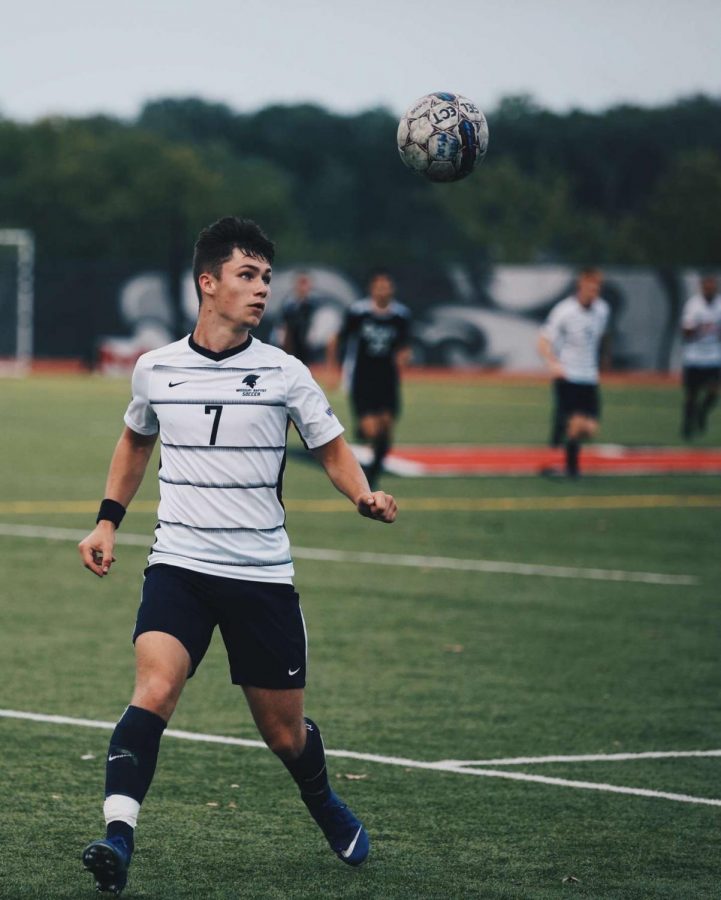NAIA Still Proceeding Fall Season
Among the COVID-19 pandemic, universities and college athletes in all NCAA divisions were faced with devastating news with the announcement that the organization decided to forego all fall sports seasons for 2020. However, one organization—the NAIA—decided to continue on with their college sports for the fall season this year.
The National Association of Intercollegiate Athletics, or the NAIA, is composed of 250 schools, which means it is a much smaller organization than the NCAA. Consequently, universities that choose to participate in NAIA sports pay much less in fees than those who choose to participate in the NCAA. The impact of the NAIA’s decision to proceed forward with their season is less of a financial burden than that of the NCAA’s, especially with the imposed implications that the season has established as a result of the pandemic.
With the decision to move forward with their conference play, came implications that interrupted typical league protocol—delayed practices and national championships, limited contests, and reformed standards.
Practice protocols have also been affected by COVID. Dominic Smith, a sophomore on the Missouri Baptist soccer team, described the new normal as “always having to wear a mask as soon as you get to training, [and having] to be screened. [They also] have to answer questions, which [they] have to do for [their] campus. Then [they] get [their] temperature taken, and [they’re] not allowed to train unless [they’ve] been cleared through that.”
Freshman, Jack Carney talked about the time commitment that COVID protocols require before every practice. He guessed that each person spends about 15 to 20 minutes to be scanned before they enter the building and, “if you add that up [they’ve] lost over an hour to an hour and a half taken out of time training.”
Another sophomore, Seosamh Sheerin continued, “Whenever we’re not on the field we have to social distance no matter what we do. In the gym [they] have to wear masks.” However, on the field, the spread of COVID-19 is much more likely to happen. Smith began, When [we’re] actually playing the game there’s nothing you can actually do about it because if it’s a corner [kick], you’re [standing] there chest-to-chest with the opposition. Nothing you can really do about it.” With these given circumstances, universities in the league have been given the option to obtain their own protocols per CDC guidelines.
Sheerin said, “Since we’re the only ones going ahead with it, it’s been difficult. The way the rules are set is [that] if someone takes a test within our team, [and] that test comes back positive, our whole team has to quarantine for around 2 weeks.” He continued, “There’s about 35 people on our first team, which means that if any one of us [were to] get it, we’re all out for a long time and that’s so difficult because we’re going to miss games and we’re going to miss points every single time that happens.” Positive COVID testing could affect already limited gameplay, as the NAIA cut down all men and women’s soccer seasons from 18 games to 14 for the fall. In addition to this, cross country, football, and volleyball teams in the NAIA division faced shortened seasons. For the Missouri Baptist University soccer team, COVID affected their season already. “We’ve already had people that did have it,” Sheerin started. Carney continued, “We were getting fit and then we had to stop for two weeks just for precaution as someone on the team had COVID.” This lack of training was apparent in the team’s first game back after their short time away. “We weren’t fit at all,” said Carney, “we were doing just two weeks of staying in the house doing no running or soccer. So yeah, COVID did affect that.” Along with limited gameplay, the NAIA made an executive decision to delay national championships to the spring season.
When making the decision to postpone fall national championships, the NAIA released a statement. “Given the fast-paced and constantly-changing nature of the current environment, the COP recognized that the likelihood of safely completing the fall sports season has decreased significantly,” said Dr. Arvid Johnson, COP Chair and University of St. Francis President. “This decision allows conferences to consider the regional impact of COVID-19 when determining the appropriate time for regular season competition.” However, even though national championships have been postponed to spring, this fall season, even with COVID, will affect nationals. Sheerin continued, “It’s also affecting whether or not we’ll be able to go to nationals because you have to play a certain [number] of games. Also, if we have to quarantine, then we can potentially miss a game and it’s [not guaranteed] that [the missed] game will be rescheduled, even if it’s cancelled.”
Although the COVID has affected sports heavily, especially for the NAIA, there are students who are grateful for the opportunity to play. Smith concluded, “We’re happy to be able to play and we’re happy we can train all the time. [Yet,] it really is just up in the air how this season’s going to go and no one knows what’s going to happen. So, we just gotta take it game by game and carry on.”
Your donation will support the student journalists of Saint Louis University.




